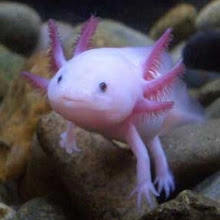Thursday, September 4, 2008
Daily articles
Videos on coral reefs
http://www.youtube.com/results?search_query=coral+reef&search_type=&aq=f
Article
Benefits of coral reefs
What causes the reef to die
Causes of Coral Reef Degradation
| Man-made Stresses | Natural Stresses |
| -pressure from population increase (including migration and intensified uses) | -Crown of Thorns (Starfish) predator outbreaks |
| -depletion of fish stocks | -tropical storm damage |
| -destructive fishing methods, such as dynamite blasting and poisons (cyanide) | -warmer ocean temperature fluctuations resulting in coral bleaching |
| -excessive non-point source pollution, e.g. from agricultural runoff and contamination of aquifers | -earthquakes |
| -ship-based pollution; including oil, plastics and bilge water | -wave action |
| -mangrove harvesting or displacement for aqua culture products | -flooding |
| -increased sedimentation as a result of deforestation and poor land use | -flooding and surface water run-off |
| -coral and coral sand mining | -Natural Diseases |
| -unplanned tourism-including inadequate wasted water treatment, unregulated construction, collection of corals and ornamental reef species, spear fishing, etc. | Identified Hard Coral Diseases (The Coral Disease Page) offline |
| -land based and urban construction activities including dredging, filling, and increased siltation |
Habitat requirement
Habitat requirements.
1. Although various types of corals can be found from the water's surface to depths of 19,700 ft. (6,000 m), reef- building corals are generally found at depths of less than 150 ft (46 m), where sunlight penetrates. Because reef- building corals have a symbiotic relationship with a type of microscopic algae, sunlight is necessary for these corals to thrive and grow.
a. Reefs tend to grow faster in clear water. Clear water allows light to reach the symbiotic algae living within the coral polyp's tissue. Many scientists believe that the algae, called zooxanthellae, promote polyp calcification. See symbiosis for more information on this algae and its relationship with coral.
b. Light-absorbing adaptations enable some reef- building corals to live in dim blue light.
2. Reef-building corals require warm ocean temperatures (68 to 82 F, or 20 to 28 C). Warm water flows along the eastern shores of major land masses.
3. Reef development is generally more abundant in areas that are subject to strong wave action. Waves carry food, nutrients, and oxygen to the reef; distribute coral larvae; and prevent sediment from settling on the coral reef.
4. Precipitation of calcium from the water is necessary to form a coral polyp's skeleton. This precipitation occurs when water temperature and salinity are high and carbon dioxide concentrations are low. These conditions are typical of shallow, warm tropical waters.
5. Most corals grow on a hard substrate.
declination of coral reefs
As there is a problem posting up the article, I will just hyperlink you to the page




